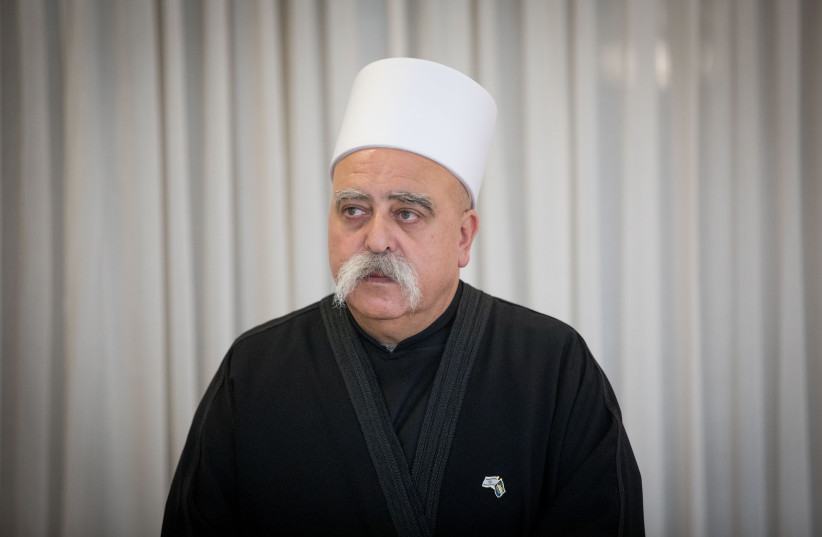Israel needs to reconsider its Nation-State Law and adjust it to ensure equality for minorities, Israel's Druze community leader Sheikh Muwafaq Tarif told Prime Minister Benjamin Netanyahu in a letter on Monday.
A copy of the letter was also sent to opposition leader Yair Lapid as well as other current and former politicians and Druze community leaders.
"It's time for the government to reckon with the Druze community, its soldiers, and its fallen," Tarif wrote. "Now is the time for the government and the Knesset to initiate a change to the Nation-State Law and repair the historical distortion regarding the Druze community while anchoring the community and its rights in legislation."
The Basic Law: Israel as the Nation-State of the Jewish People was a controversial law that was passed in 2018. The law sought to anchor Israel's identity as a Jewish state in legislation as the only other document that did so was the Declaration of Independence which is not considered a legal document.
The controversy came from the law's lack of guarantee of rights, especially for minorities. While the Declaration of Independence characterized Israel as a Jewish and democratic state, the Nation-State Law did not mention the latter.

Israel's Druze have sacrificed a lot for their country
Meanwhile, many Druze people serve in the IDF, some of whom have been killed during the Israel-Hamas war.
Lapid spoke about the letter during a Knesset plenum session on Monday.
"Let us fix the Nation-State Law at this moment to make it clear that in life and in death, we are equal," he said.
Tarif also asked for the cancellation of warrants issued against construction on privately owned Druze land and the dismissal of fines issued against Druze people who built homes in the Galilee and the Carmel.
"Now is the time for the government to instruct the authorities and planning bodies to legitimize and regulate all construction for homes in Druze towns and allocate land for the homeless," he added. "Now is the time the government is required to lead a different policy regarding Druze towns in a possible and real policy for development and social and economic prosperity in all the towns."
He ended the letter by saying that he would assist Netanyahu in any way he could to bring about the changes he was requesting.
"In the name of the unity among the people, which politicians have been partial to since the war broke out on October 7, I ask that you personally act from today to fulfill all the demands put forth," he wrote.
Meanwhile, Interior Minister Moshe Arbel met with the Druze community on Monday.
"This pact is a connection that cannot be broken," he said during the meeting about Israel's relations with the Druze community. "We see great importance in the integration of the community."
He went on to promise that Israel would find housing solutions, social solutions and will strive for equality.
"It cannot be that there is a group in Israel that feels discriminated against or neglected," he said.
